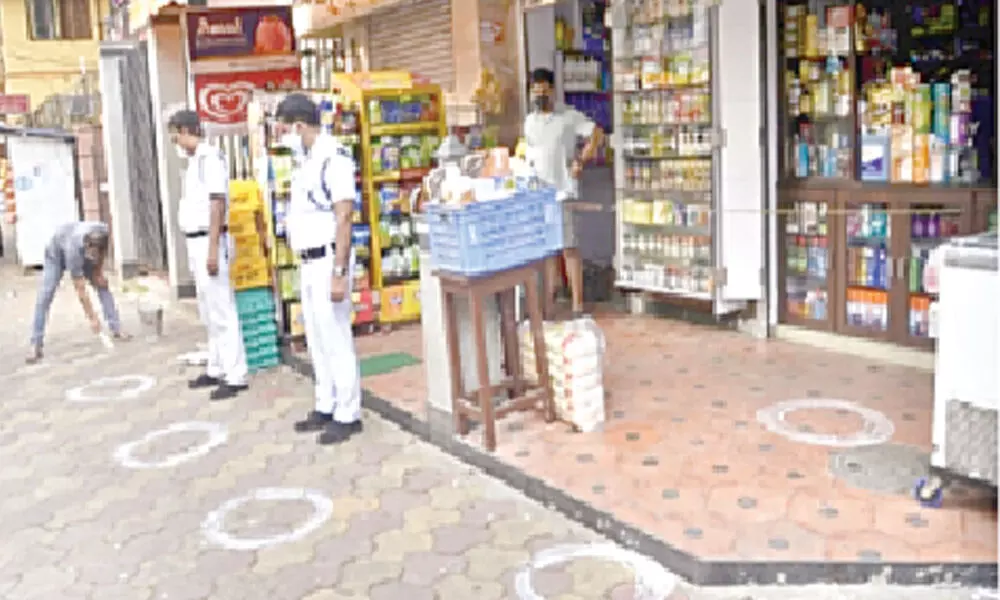2m distance not enough as Covid-19 airborne
Ventilation can decrease the risk of transmission from one infected person to the other
image for illustrative purpose

New Delhi Maintaining social distance of two metres is not enough as coronavirus that spreads via aerosol can be carried up to 10 metres through the air, experts warned on Tuesday, adding that double masks, coupled with hand hygiene and proper ventilation could be the key to curb the spread.
Coronavirus was earlier deemed to be spread via droplets. But a new assessment published in the medical journal The Lancet last month revealed that there is consistent and strong evidence to prove that the SARS-CoV-2 virus, which causes Covid-19, is predominantly transmitted through the air. On the other hand, evidence supporting large droplet transmission was almost non-existent.
Earlier this month, the US Centers for Disease Control and Prevention (CDC) said that coronavirus is airborne. The Indian government also, in a recent advisory, said that aerosols can travel up to 10 metres from the infected person, and that aerosol, through the infected person, can fall within two metres but can be carried up to 10 metres through the air.
"Obviously, a distance of two metres is not enough. That the virus is aerosol-borne probably explains why the disease is spreading more rapidly. What we must stress more on is Covid-appropriate behaviour," said HS Chhabra, Medical Director of Indian Spinal Injuries Centre.
"The virus can sustain in the air for six hours and it can travel 10 metres of distance. One should wear double masks and when someone is wearing double masks, then two metres distance is enough," added Vikas Maurya, Director and HOD, Pulmonology, Fortis Hospital, Shalimar Bagh.
The Union government's Principal Scientific Advisor, Prof K VijayRaghavan, recently released an advisory "Stop the Transmission, Crush the Pandemic - Masks, distance, sanitation and ventilation, to prevent the spread of SARS-CoV-2 virus", which highlights the important role well-ventilated spaces play in diluting the viral load of infected air in poorly-ventilated houses, offices etc.
Ventilation can decrease the risk of transmission from one infected person to the other.
The advisory reads that just as smells can be diluted from the air through opening windows and doors and using exhaust systems, ventilating spaces with improved directional air flow decreases the accumulated viral load in the air, reducing the risk of transmission.

